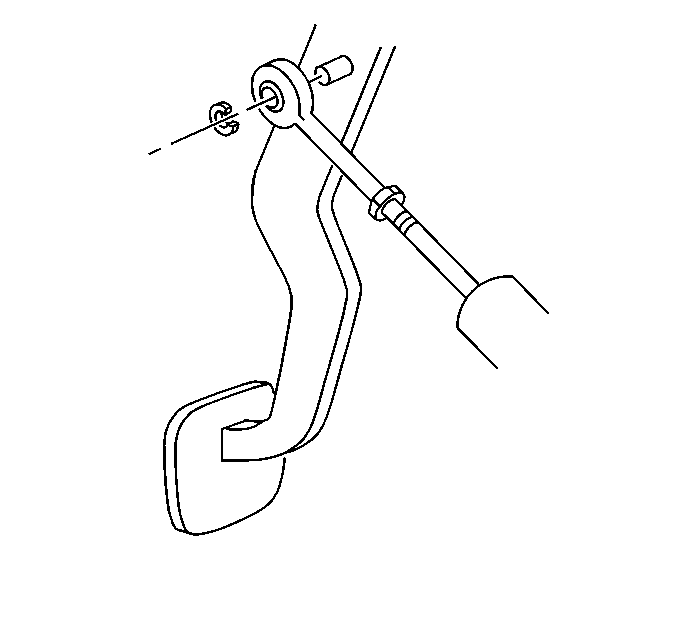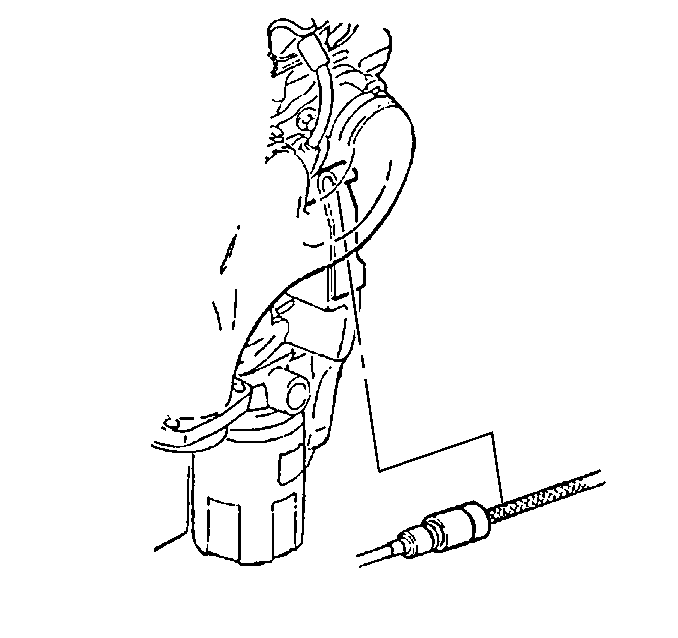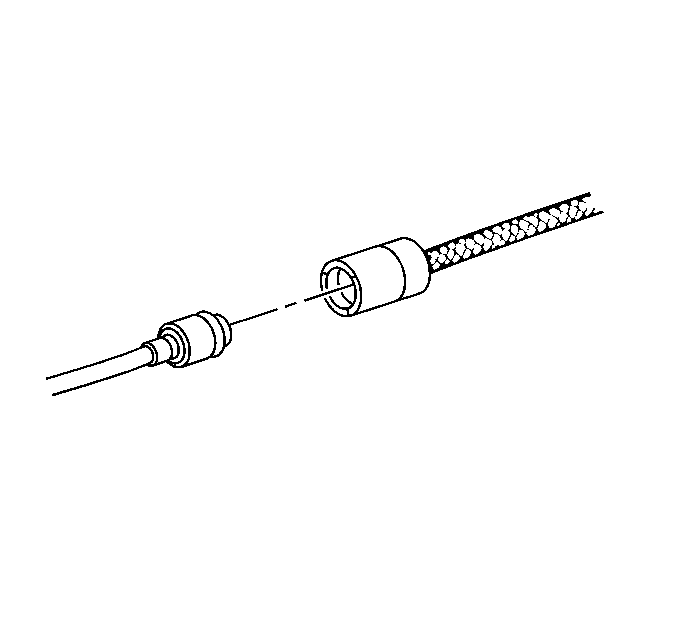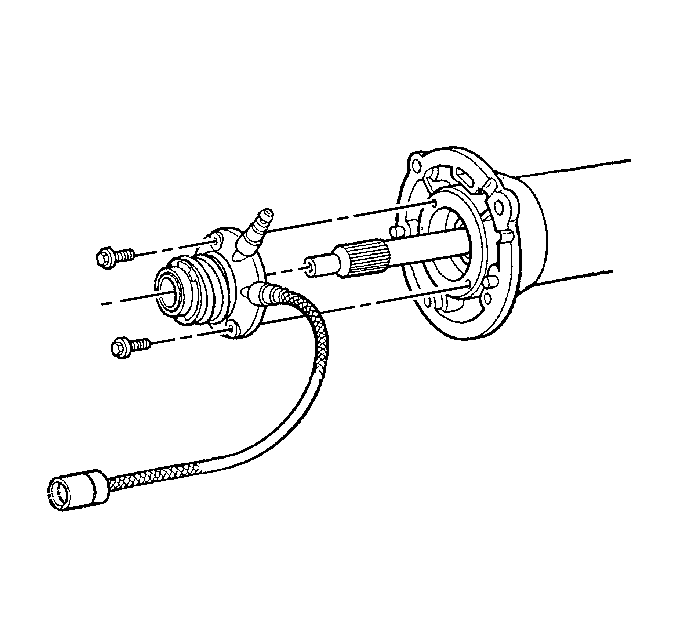Tools Required
J 36221 Hydraulic Clutch Line Separator
Removal Procedure
- Disconnect the negative battery cable.
- Remove the left I/P lower insulator panel. Refer to Instrument Panel Insulator Panel Replacement - Left Side in Instrument Panel, Gages and Console.
- Remove the clutch master cylinder rod retainer.
- Remove the clutch master cylinder rod from the clutch pedal.
- Raise and suitably support the vehicle. Refer to Lifting and Jacking the Vehicle in General Information.
- Remove the clutch actuator cylinder hose from the hose retaining clip (at the rear of the engine).
- Using the J 36221 , depress the white circular release ring on the actuator hose and simultaneously pull lightly on the master cylinder hose to disconnect.
- Protect both hose coupling ends from dirt and damage.
- Remove the driveline support assembly and transaxle from the vehicle. Refer to Driveline Support Assembly Replacement in Propeller Shaft.
- Remove the clutch actuator cylinder mounting bolts.
- Remove the clutch actuator cylinder from the driveline support assembly.

Caution: Unless directed otherwise, the ignition and start switch must be in the OFF or LOCK position, and all electrical loads must be OFF before servicing any electrical component. Disconnect the negative battery cable to prevent an electrical spark should a tool or equipment come in contact with an exposed electrical terminal. Failure to follow these precautions may result in personal injury and/or damage to the vehicle or its components.



Installation Procedure
Notice: Ensure that the clutch hydraulic hoses are positioned away from nearby vehicle components or vehicle damage may result.
- Install the clutch actuator cylinder into position on the driveline support assembly.
- Install the actuator cylinder mounting bolts.
- Install the driveline support assembly and transaxle to the vehicle. Refer to Driveline Support Assembly Replacement in Propeller Shaft.
- Connect the clutch actuator cylinder hose to the clutch master cylinder hose.
- Check the hydraulic hoses for twists of kinks.
- Install the clutch actuator cylinder hose to the hose retaining clip (at the rear of the engine).
- Lower the vehicle.
- Install the clutch master cylinder rod to the clutch pedal.
- Install the clutch master cylinder rod retainer.
- Install the left I/P lower insulator panel. Refer to Instrument Panel Insulator Panel Replacement - Left Side in Instrument Panel, Gages and Console.
- Connect the negative battery cable.
- Program the transmitters. Refer to Transmitter Programming in Keyless Entry.
- Bleed the clutch hydraulic system. Refer to Hydraulic Clutch Bleeding .

Notice: Use the correct fastener in the correct location. Replacement fasteners must be the correct part number for that application. Fasteners requiring replacement or fasteners requiring the use of thread locking compound or sealant are identified in the service procedure. Do not use paints, lubricants, or corrosion inhibitors on fasteners or fastener joint surfaces unless specified. These coatings affect fastener torque and joint clamping force and may damage the fastener. Use the correct tightening sequence and specifications when installing fasteners in order to avoid damage to parts and systems.
Tighten
Tighten the clutch actuator cylinder mounting bolts to 12 N·m
(106 lb in).

Important: DO NOT rely on an audible click or a visual verification of the clutch hydraulic hose quick connect fitting connection.
Push together the clutch hydraulic hose quick connect fittings, then pull back on the fittings to verify engagement.


Tighten
Tighten the negative battery cable bolt to 15 N·m (11 lb ft).
